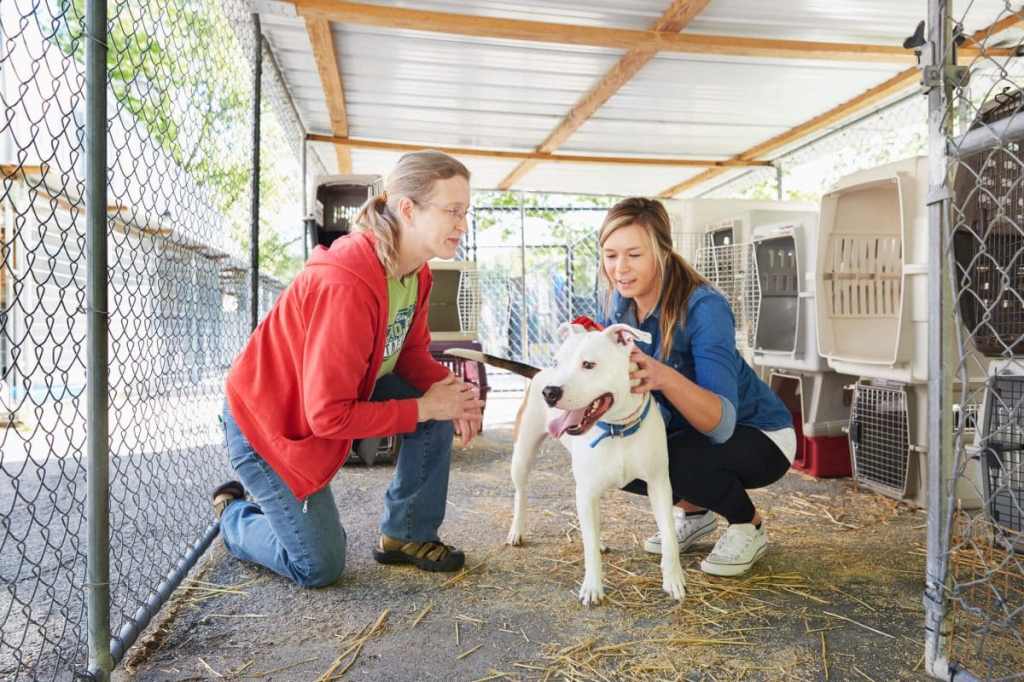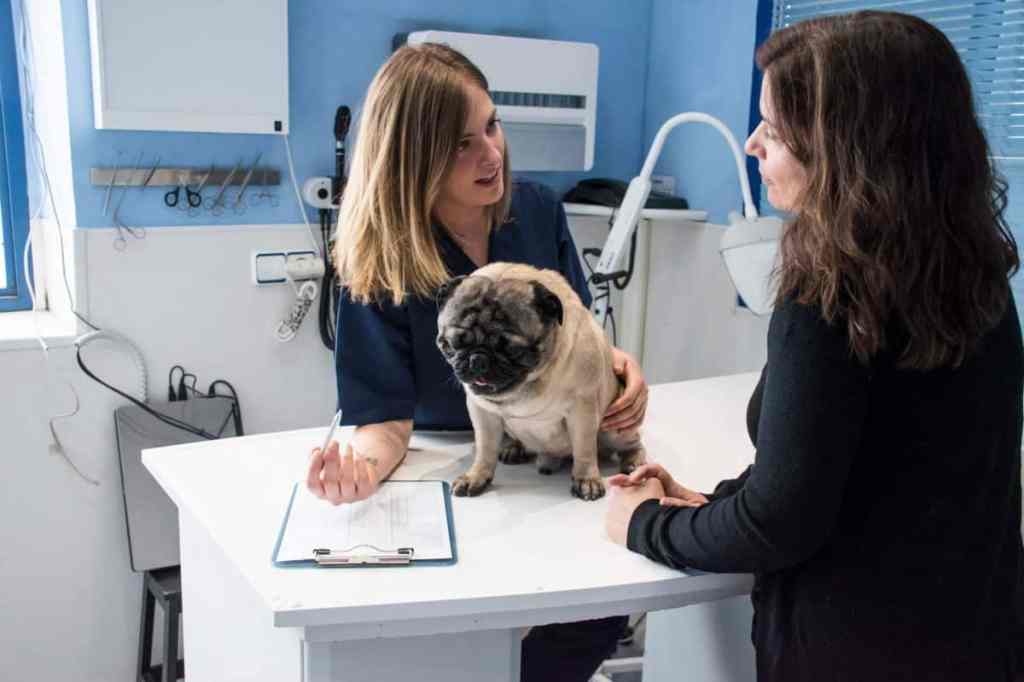Dogs are often called man’s best friend for good reason — they offer unconditional love, companionship, and happiness. However, alongside the joy they bring, welcoming a furry friend into your life comes with its own set of responsibilities, not the least of which are the financial commitments involved. From the initial adoption fees to ongoing costs such as food, healthcare, and grooming, the expenses of owning a dog can quickly add up. So, before you rush to the nearest shelter, let’s take a closer look at what it means financially to be a dog parent.
How much does it cost to adopt or buy a dog?

One of the first major financial decisions you’ll face as a potential pet parent is whether to adopt a dog from a shelter or purchase one from a breeder. The costs associated with each option can vary significantly, and understanding these differences is essential for your budgeting.
Adopting a dog is typically more cost-effective than buying one. Adoption fees generally range from $50 to $500, depending on the shelter, as well as the dog’s age, breed, and health status. These fees often cover essential services such as vaccinations, spaying or neutering, and microchipping, which can save you money on initial veterinary costs. Beyond the financial aspect, adoption is an act of kindness that provides a home to an animal in need. Shelters and rescues are filled with dogs of all breeds, ages, and sizes, each with a unique personality looking for a loving home.
On the other hand, if you decide to purchase a dog, be prepared for a significantly higher investment. The price can escalate dramatically for specialty or designer breeds, especially those with champion bloodlines. For instance, a purebred Labrador Retriever puppy might cost anywhere from $500 to $2,000, while rarer breeds — such as the French Bulldog or Lagotto Romagnolo — can fetch prices upwards of $5,000.
While buying from a reputable breeder may offer some assurance of a healthy lineage, it is crucial to thoroughly research and verify the breeder’s credentials. This helps avoid supporting puppy mills or unethical breeding practices. A good breeder will provide health clearances for the puppy’s parents and allow you to meet them, demonstrating a commitment to responsible breeding practices. That said, it’s important to remember that a higher price tag does not necessarily guarantee better health or behavior in a dog.
What are the essential initial costs of owning a dog?

Once you’ve decided how to bring your new canine companion home, you’ll need to prepare for the initial setup costs. These expenses ensure your dog has a comfortable and safe environment to settle into. Here are some essentials to budget for:
Veterinary care
Upon bringing your dog home, a visit to the veterinarian is essential. The initial vet visit may include a general health check, vaccinations — if not already done — deworming, and a microchip, which can cost between $100 and $300. Puppies might require multiple visits in their first year for booster shots and health assessments.
Spaying or neutering
Spaying or neutering is an important part of responsible pet ownership. The cost can range from $50 to $500 depending on your location and the veterinary clinic. Some shelters include this in the adoption fee or offer vouchers for discounted services.
Basic supplies
To ensure your new dog has everything they need, you’ll want to purchase a few essential supplies. These may include:
- Food and water bowls: Basic bowls cost about $10 to $30, but prices can increase for specialized or designer options.
- Collar and leash: A sturdy collar and leash set can range from $15 to $50.
- Crate: Crates provide a safe space for your dog and are useful for training. Depending on the size and quality, crates can cost anywhere from $30 to $200.
- Bedding: Dog beds can vary widely in price, typically ranging from $20 to $100.
- Toys and chews: Initial toys and chews might cost around $20 to $50 to keep your dog entertained and mentally stimulated.
- Grooming supplies: Basic grooming tools like brushes, shampoo, and nail clippers can cost between $25 and $75.
Training classes
Proper training and socialization early on can save you a lot of headaches and expenses down the road. As such, group classes can range from $50 to $150 for a series of sessions. If you prefer personalized attention, private training can be more expensive, from $30 to $100 per hour. Alternatively, investing in books or online resources can be a cost-effective way to train your dog at home.
Licensing and registration
Many areas require you to license your dog, and there may be a fee for this. Licensing costs can vary depending on your location but are generally between $10 and $50 annually. In some jurisdictions, the fee may be lower for spayed or neutered dogs. Licensing not only helps local authorities keep track of dog populations but also facilitates the return of lost pets, as each license typically comes with an ID tag linked to your contact information.
How much should you budget for monthly dog expenses?

After the initial costs, there are ongoing monthly expenses to consider. The exact amount can vary based on your dog’s size, breed, and health needs, but here’s a general breakdown:
Food
On average, you can expect to spend anywhere from $20 to $60 per month on dog food. Premium brands or special dietary formulas could increase this cost. It’s wise to start with a small bag to ensure your dog enjoys the food before committing to a larger purchase. Also, don’t forget to factor in the cost of treats, which can add an extra $10 to $30 monthly, especially if you use them for training or rewards.
Grooming
Some dogs may require professional grooming every month or so, with costs ranging from $30 to $100 per visit. Even if your dog doesn’t require frequent professional grooming, you’ll still need to budget for basic grooming supplies like shampoo, brushes, and nail clippers, which can add up to about $5 to $15 per month.
Preventive treatments and medications
Heartworm is a serious disease transmitted through mosquito bites. Preventative medications are necessary because treatment for heartworm is costly and complex once your dog is infected. Accordingly, monthly heartworm prevention typically ranges from $6 to $18, depending on the size of your dog and the specific medication your vet recommends. Some popular options include Heartgard, Interceptor, and Sentinel. These are generally administered orally once a month.
Beyond heartworms, dogs can be susceptible to other types of worms, such as roundworms, hookworms, and tapeworms. Many veterinarians recommend deworming puppies every few weeks initially, then moving to a regular schedule for adult dogs, often every three to six months. These treatments can cost between $10 and $50 per dose.
You’ll also need to safeguard your pet against flea infestations. Flea and tick preventatives come in various forms, including topical treatments, oral medications, and collars. Monthly costs can range from $10 to $60, again depending on the size of your dog and the brand. Frontline Plus, NexGard, and Seresto collars are common options.
Some products on the market combine heartworm, flea, tick, and de-worming medications into a single dose. These all-in-one solutions can simplify your pet’s healthcare routine and may be more cost-effective. While they may have a higher upfront cost, they could potentially save money in the long run by reducing the number of separate medications needed. Combination medications may cost between $20 to $45 per month. Discuss with your veterinarian which option best suits your dog’s needs.
Pet insurance
Pet insurance can be a lifesaver if your dog faces unexpected health issues or emergencies. Monthly premiums vary based on coverage levels, your dog’s age, breed, and pre-existing conditions. Typically, pet insurance costs range from $20 to $60 per month. It’s a good idea to shop around and compare policies to find the one that best fits your budget and needs.
Supplies and accessories
You’ll need to budget for supplies like leashes, collars, beds and blankets, toys, and other accessories. Depending on your pup’s breed or age, they may also need seasonally-appropriate attire like dog sweaters, pajamas, raingear or winter coats, and even boots to avoid the elements when outdoors. You may also need to keep essentials like pee pee pads, dog seat belts, seat covers, or car seats — as well as a dog first aid kit — on hand if your pet frequently travels with you, participates in outdoor physical activities like hiking or camping, or if you live in an area prone to natural disasters. You’ll also want to purchase a toothbrush, dog-safe toothpaste, and dental chews to keep your pup’s teeth clean and breath fresh. While some of these are one-time purchases, others will need to be replaced or updated periodically. Consider allocating around $15 to $50 per month on supplies, depending on your dog’s needs and how frequently you purchase new items.
What unexpected and annual expenses should you prepare for?

Beyond the predictable monthly costs, owning a dog comes with potential unexpected and annual expenses. It is advisable to have a financial cushion or insurance plan for these:
Routine and emergency vet bills
Routine veterinary care is a must for keeping your dog healthy and preventing costly health issues down the road. Annual check-ups typically cover vaccinations, flea and tick prevention, heartworm testing, and overall health assessments. Depending on your location and specific services, these visits generally range from $100 to $300 per year.
Emergency vet bills, however, can be much more unpredictable and expensive. Emergencies like injuries, sudden illnesses, or toxic ingestions often require immediate care and can cost anywhere from $500 to $5,000, depending on the severity. For this reason, having an emergency fund or pet insurance is necessary to reduce the financial strain of these unexpected situations.
Vaccinations
The cost of vaccinating your dog can vary depending on several factors, including your location, the specific vaccines needed, and whether you go to a private veterinarian or a low-cost clinic. The first year of vaccinations tends to be more expensive due to the series of initial shots puppies require. These may include vaccines for rabies, distemper, parvovirus, adenovirus, and other diseases. On average, the cost for the first year is between $75 and $200.
After the first year, the cost usually decreases as your dog transitions to a schedule of booster shots and annual vaccinations. These recurring vaccines are generally less expensive, with costs ranging from $40 to $100 per year on average. Of course, some local clinics may even charge as little as $5 for an annual rabies shot, but you and your dog best be prepared to wait in very long lines. Notably, once your dog is receiving boosters, they may qualify for the three year shots for both rabies and DHPP — which will typically also save you money and mean two less shots to get in the following couple of years.
It’s important to maintain regular vaccination schedules to keep your dog protected from preventable diseases. Additionally, some areas or boarding facilities may have specific requirements for vaccines, like bordetella or canine influenza, which could influence your yearly costs. Similarly, some municipalities require you to submit proof of your dog receiving certain vaccines annually in order to renew your pet’s license. Your veterinarian will help you create an appropriate vaccination plan that balances both health needs and financial considerations.
Major health procedures
As your dog ages, they may require major health procedures such as surgery for orthopedic issues, dental cleanings, or treatment for chronic conditions like diabetes or arthritis. These procedures can be costly, with surgeries sometimes reaching upwards of $5,000. Regular dental cleanings can also add up, costing between $300 to $700 each time. Make sure to discuss potential future health needs with your veterinarian and consider setting aside funds for these significant medical costs.
Advanced training and behavior correction
Every dog is unique in their own way. While some may be naturally easygoing, others may require guidance and behavior correction. If your dog develops anxiety or other behavioral issues, specialized training might be necessary. This could involve hiring a specialist — such as an animal behaviorist — which can cost $100 to $200 per hour. Ongoing or advanced training programs can add up to $500 to $1,000 or more.
Dog boarding or pet sitting
Whether you’re traveling for work or pleasure, there will likely be times when you need to arrange care for your pet. Dog boarding facilities offer a safe place for your pet to stay while you’re away. These facilities usually charge between $25 and $85 per night, based on the level of care and amenities provided. Keep in mind that extended stays can quickly increase your expenses.
Alternatively, hiring a pet sitter to care for your dog at home can offer a more personalized and stress-free experience for your pup. Pet sitters typically charge $15 to $50 per visit or even more for overnight stays. Always check references and reviews to ensure your dog is in good hands.
Specialty experiences
If you plan to bring your dog along on your travels, there are additional costs to consider. For example, flying with your dog requires careful planning and can lead to extra expenses. Airlines have specific regulations and fees for pets, ranging from $75 to $200 per flight for in-cabin travel. If your dog is too large for the cabin and must travel in the cargo hold, the cost may be even higher. You may also need to prepare your pet for travel by purchasing an airline-approved carrier and obtaining health certificates. Furthermore, when seeking pet-friendly accommodations and hotel stays, be aware that many places charge extra fees, often between $20 and $100 per night.
End-of-life costs
As difficult as it is to think about, end-of-life expenses are an inevitable part of pet ownership. Veterinary euthanasia services can cost between $100 and $300, depending on whether it’s performed at a clinic or at home. There are some veterinarians who opt not to charge for euthanizing their long-term patients, but each clinician is different. Cremation services can add an additional $50 to $300. Some pet parents opt for burial services, which can be more expensive — especially if choosing a pet cemetery. While these decisions are deeply personal, being financially prepared can help ease the emotional burden during a difficult time.
Tips to save money on dog expenses without compromising care

With the rising cost of living affecting families worldwide, it’s not just an American issue. For instance, a 2024 survey in Australia revealed that over 76% of respondents were worried about affording vet bills amidst the ongoing financial strain. Fortunately, there are ways to manage these expenses without compromising the quality of care your beloved pet receives. Here are some tips to help you save money while ensuring your dog remains happy and healthy:
- Plan and budget: Start by creating a budget for your dog’s expenses. This should include food, regular vet visits, grooming, toys, and any other regular costs. Planning helps prevent unexpected expenses from sneaking up on you, and sticking to a budget ensures you’re prepared for all necessary costs.
- DIY when possible: Consider doing some tasks yourself instead of hiring professionals. Grooming, nail clipping, and even basic training can often be done at home with the right tools and resources. There are numerous online tutorials and resources available to help you learn these skills, which can lead to substantial savings over time.
- Compare prices and shop smart: When purchasing dog food and supplies, buy in bulk or subscribe to delivery services that offer discounts. Look for sales and compare prices online and in-store to get the best deals. Don’t forget to use coupons or cashback apps to maximize savings on every purchase.
- Explore tax-deductible costs: If your dog is a working animal — such as a service or therapy dog — or if you foster pets for a qualified charity, you may be eligible for tax deductions on some expenses. Consult with a tax professional to explore potential deductions and ensure you comply with current regulations.
Is owning a dog worth the cost?

While it’s easy to be charmed by the thought of having a furry friend, it’s crucial to prepare for the full spectrum of costs associated with owning a dog. By budgeting carefully and planning for both recurring and unexpected expenses, you can provide your pet with a loving and financially secure home. And although it might sound like a lot of money, having a loyal pup by your side is worth every penny. They are lifelong companions who bring joy and laughter, even in their cheeky antics. After all, there is a reason we call them our best friends, right?








